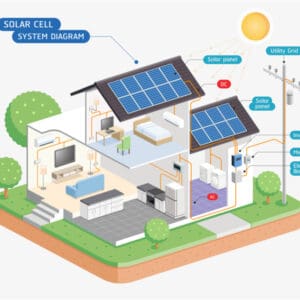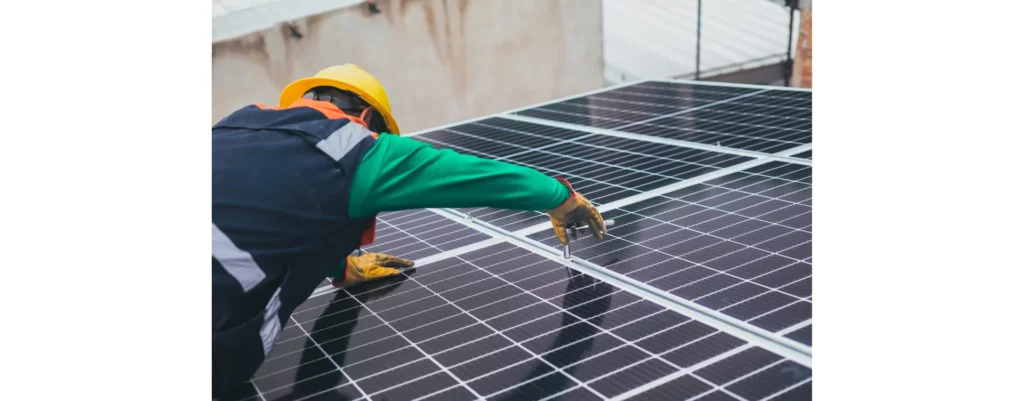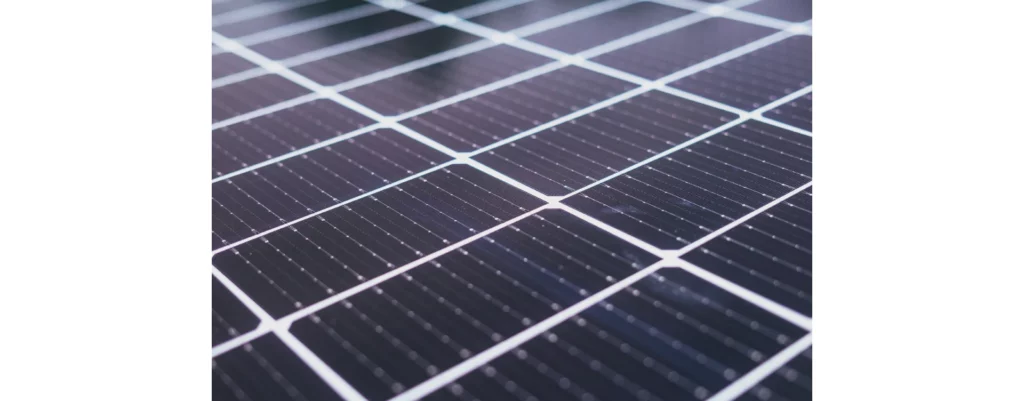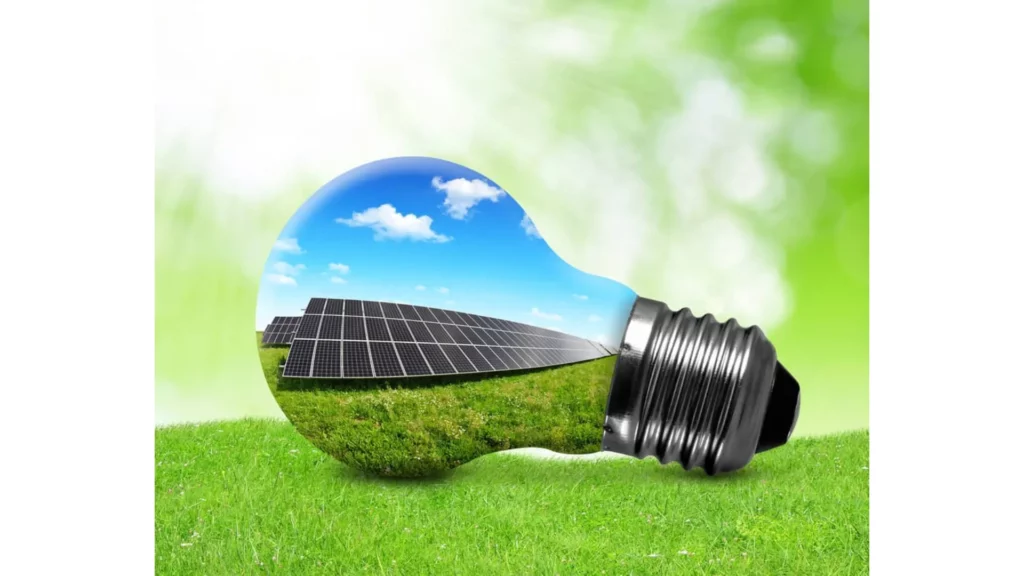Solar Energy Pros and Cons
As a homeowner seeking to generate my own electricity and reduce reliance on the grid, solar power emerges as a compelling solution.
The sun, a consistent and renewable source of energy, holds immense potential to power my home sustainably.
Understanding how solar energy works, its benefits, and any drawbacks is crucial in making an informed decision. Is it time to make the switch to solar energy?
This article delves into the details, guiding homeowners like myself through the process of evaluating whether solar power is the right choice for our homes and lives.

What is Solar Energy?
Simply put, solar energy is radiant energy that is beamed down by the sun onto Earth. This energy can be collected, in a way, and stored, to be used to generate power and heat water for homes and businesses.
Focusing specifically on solar panels, they work by enabling photons- that's particles of light, to the non-scientific of us- to knock into atoms, freeing electrons and creating electricity.
The photovoltaic cells inside solar panels are semi-conductive, and each has a positive or negative charge, forming an electric field. When a photon knocks an electron free, the electric field turns the electron into usable power.
Solar panels can be stand-alone, meaning they are responsible for creating their own energy for the building they're located on and require a rechargeable battery to store energy.
They can also be connected to the utility power grid. The solar panel system will only generate power when this grid is available.
If you're using the sun's power for heating purposes, the process is more simple- the sun heats up water stored in tanks on top of buildings.

The photons from the sun strike the atoms inside the water, causing them to collide more frequently with one another, creating heat.
It is worth noting that these hot water tanks tend only to be used in countries that see a lot of sunlight so that enough hot water can be generated for use.
In some parts of the world, they simply would not be efficient enough to be worth installing.
The Benefits Of Solar Energy
- Renewable Energy Source: Solar energy is a renewable source of energy, meaning it's inexhaustible and can be replenished on a human timescale.
- Reduces Electricity Bills: By generating your own electricity with solar power, you will reduce the amount of electricity you need to buy from your utility provider, which can lead to significant cost savings.
- Diverse Applications: Solar energy can be used for diverse purposes. It can produce electricity in areas without access to the energy grid, distill water in regions with limited clean water supplies, and power satellites in space.
- Low Maintenance Costs: Solar energy systems generally don't require a lot of maintenance. Once installed, there are no recurring costs, and most reliable solar panel manufacturers offer a warranty of 20 to 25 years.
- Technology Development: Technological advancements are constantly being made in the field of solar power, with new innovations and improvements increasing solar energy efficiency and effectiveness regularly.
- Environmental Impact: Solar energy production generates clean, green, renewable energy from the sun and reduces the amount of greenhouse gas emissions, helping to combat climate change.
- Job Creation and Economic Growth: The solar energy industry is also a consistent source of job creation, contributing to economic growth.
- Energy Independence: By increasing our capacity to generate electricity from the sun, we can also insulate our country from price fluctuations in global energy markets, leading to greater energy security and independence.

Solar Energy Pros and Cons
Pros of Solar Energy:
- Sustainability: Solar energy is a renewable resource, ensuring a constant and sustainable energy supply. Solar panels harness the sun's energy, which is plentiful and available worldwide, making it a long-term energy solution.
- Environmentally Friendly: Solar energy is clean, producing no harmful greenhouse gas emissions, unlike fossil fuels or nuclear energy. This helps in reducing the carbon footprint and protecting the environment.
- Property Value Increase: Installing solar panels can boost a property's market value. They provide long-term savings on energy bills, making the property more attractive to potential buyers or renters.
- Lower Energy Bills: After the initial investment in solar panels, the maintenance costs are relatively low. Solar energy reduces reliance on grid power, leading to significant savings on electricity bills.
- Earn Money Back: In some cases, if your solar panels produce more energy than you consume, you can earn money by feeding the surplus back into the grid.
- Multiple Uses: Solar energy isn't limited to electricity generation. It's also used for heating water and buildings, showcasing its versatility in meeting various energy needs.
- Reduction in Cost: The cost of solar panels has decreased due to technological advancements and increased demand. This trend is likely to continue, making solar energy an increasingly affordable option.

Cons of Solar Energy:
- Weather Dependent: Solar panels are less efficient on cloudy or overcast days. While they don't stop working, their energy production is significantly reduced, which can be problematic for larger families or higher energy demands.
- Large Surface Area Required: To collect a practical amount of energy, solar panels need a relatively large surface area. This can be a challenge for larger installations, requiring substantial space and potentially increasing installation costs.
- High Initial Costs: The upfront cost of installing solar panels can be prohibitive. This includes the cost of the panels themselves, permit fees, sales tax, and installation labor. Ongoing maintenance costs, such as regular cleaning, also add to the expense.
- Aesthetically Displeasing for Some: The size, color, and design of solar panels may not appeal to everyone. Their appearance can be a significant deterrent for those who prioritize the aesthetic aspects of their homes or buildings.
- Limited Efficiency: Current solar panel technology doesn't always meet the full energy needs of a household. This means many users still rely on traditional energy sources in addition to solar power. While technological advancements are ongoing, solar panels are not yet completely efficient.
Here is a Video to Explain Solar Panels
Conclusion
As a homeowner considering the switch to solar energy, I have delved into the pros and cons of harnessing the power of the sun. Solar energy offers undeniable benefits, such as sustainability, reduced electricity bills, and diverse applications.
It is an environmentally friendly and renewable energy source that can increase the value of my property while lowering my energy costs.
However, I must also consider the weather dependency of solar panels, the need for a significant surface area, the initial cost of installation, and their visual impact on my home's aesthetics.
Despite these drawbacks, the ongoing technological advancements and the promise of a greener future make solar energy an appealing choice.
While more research and development are needed to maximize its effectiveness, it is clear that solar energy holds immense potential as a reliable and sustainable energy solution.
Taking all factors into account, I am motivated to explore further and consider the practicality and long-term benefits of embracing solar power for my home.
Check out our review post on Renogy 200W 12V Portable Solar Panel Review it is one of our top picks for solar panels!
Sources:

